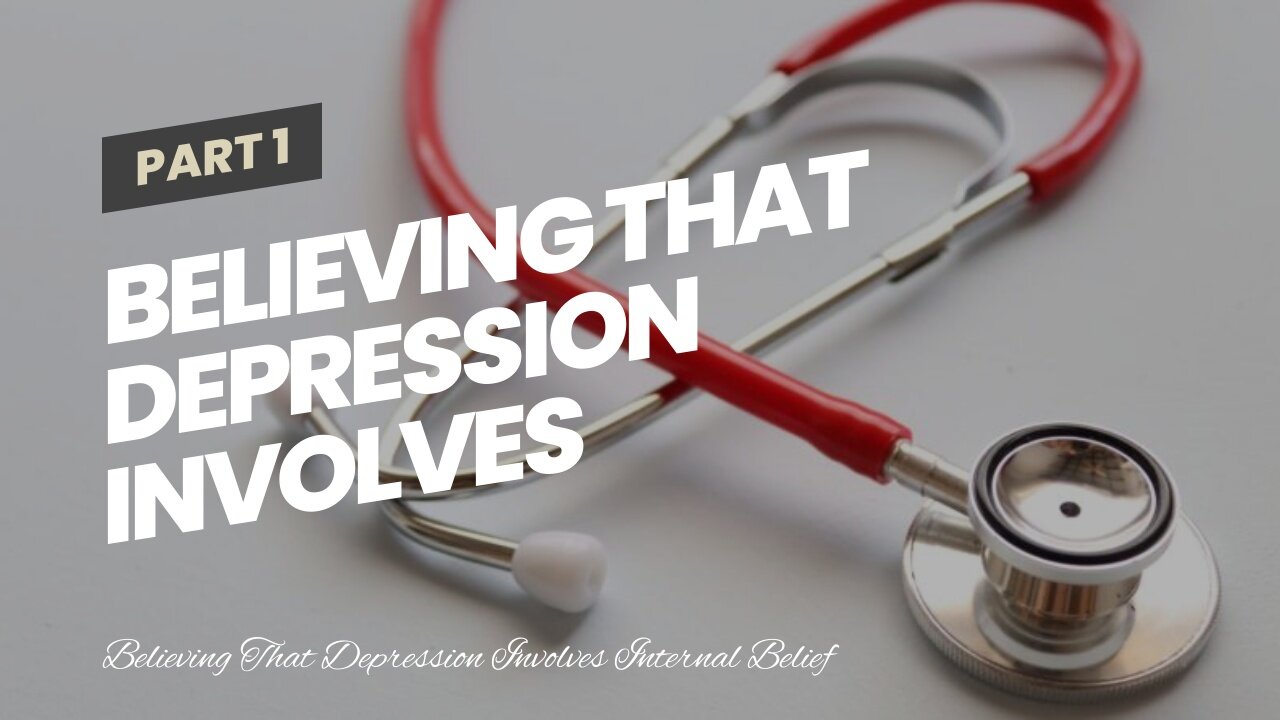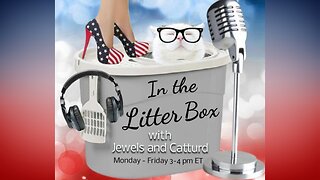Premium Only Content

Believing That Depression Involves Internal Belief Systems Characterizes
https://www.mrdepression.com/believing-that-depression-involves-internal-belief-systems-characterizes/
Believing That Depression Involves Internal Belief Systems Characterizes
Believing That Depression Involves Internal Belief Systems Characterizes Believing That Depression Involves Internal Belief Systems Characterizes. A central theme in the literature on depression is that of a learned helplessness model. Buddhists, for example, believe that the ultimate source of control lies within ourselves. Hence, if you believe that you can control your internal belief systems, you are less likely to suffer from depression. However, self-report measures of depression are helpful in identifying depressive symptoms. It is important to understand the sources and limitations of self-report measures in order to understand whether they reflect the true nature of depression. Fight Back Depression Seligman’s learnt helplessness model of depression Martin Seligman’s learned helplessness model of depression proposes that depressive disorders are cognitive in nature. The theory has several implications. First, it can explain why people with depression seem passive, without actively trying to improve their mental state. The model is based on research involving dogs. When the floor is electrified, dogs learn how to escape. As a result, these dogs are more likely to suffer from depression than non-depressed individuals.
The study of positive psychology by Martin Seligman highlights the importance of prospection, or evaluating the future. Prospection differs from memory and perception, but is relevant to unraveling learned helplessness. It also reveals the link between prospection and optimism. This link enables researchers to study the causes of depression and the mechanisms underlying optimism. The model is supported by the work of children, military personnel, and teachers.
While the concept of learned helplessness may seem complicated, it has important implications for the study of depression. It suggests that people with depression believe highly desired outcomes are unlikely to occur. In addition, they may have no expectations of changing them. They therefore view the future as uncertain. However, it is possible to train our brains to view negative events in a positive light and overcome these feelings. The study of learned helplessness is a key part of understanding the nature of depression and possible treatments.
The study also found that people suffering from depression are more likely to experience extreme negative reactions to failure. People with learned helplessness are more likely to develop phobias, shyness, and loneliness. The study of failure and its effects on the brain is widely used in education. Research has found that low academic self-esteem and early failure in school affect a person’s future success. However, it is important to note that depression and learned helplessness often coexist.
Believing That Depression Involves Internal Belief Systems Characterizes. True or false?
The learned helplessness model has several implications for understanding depression. This model is consistent with previous research on the neural circuitry that underlies the experiences of control and escape. For example, rats that have experienced escape respond to stressful stimuli as if they could escape. They are inhibited in their escape response by the prelimbic-dorsal raphe nucleus, which serves as an expectation center. In addition, the prelimbic-dorsal raphe nucleus inhibits the dorsal raphe nucleus. This inhibition blunts the effects of stressors and prevents them from having the desired effects.
While the theory is still in its infancy, it is important to note that a variety of social settings are associated with increased levels of learned helplessness in people. Research by Maier and Seligman may point to new ways to treat depression. But further research is needed. And the model is not a panacea for depression. The findings have implications for both mental health and personal relationships. It is important to note that the model of learned helplessness is not a cure, but rather an additional component to the treatment process. Buddhist view of ultimate internal controllability The Buddha explained to his disciples that death and rebirth are both inevitable. He emphasized the importance of cultivating virtue, which prevents the individual from fearing death. The Buddha said that one must learn to face death with a sense of ca...
-
 54:58
54:58
LFA TV
1 day agoThe Trade War Begins | TRUMPET DAILY 2.3.25 7pm
20.6K27 -
 11:08
11:08
Tundra Tactical
4 hours ago $0.44 earnedDead Air Silencers 10 YEARS of INNOVATION!
10.3K1 -
 1:20:32
1:20:32
The Amber May Show
1 day ago $2.98 earnedUSAID | Where Is All The Money Going | IRS Spying On Our Bank Accounts | Sam Anthony
32K18 -
 1:50:57
1:50:57
2 MIKES LIVE
3 hours ago2 MIKES LIVE #175 Deep Dive Monday!
16.8K2 -
 1:24:51
1:24:51
The Big Mig™
22 hours agoHow Transparency Will Kill The Deep State
20.3K3 -
 42:39
42:39
Dad Dojo Podcast
1 day ago $0.34 earnedEP18: NEW YEAR, NEW COLONOSCOPY
15.4K -
 1:54:36
1:54:36
Revenge of the Cis
6 hours agoEpisode 1439: Holy Guacamole
81K37 -
 1:01:50
1:01:50
In The Litter Box w/ Jewels & Catturd
1 day ago1 TRILLION! | In the Litter Box w/ Jewels & Catturd – Ep. 733 – 2/3/2025
87K54 -
 1:38:44
1:38:44
The Quartering
8 hours agoTrump's Tariffs Already Work, Blackhawk Pilot Coverup, DNC Makes Insane David Hogg Appointment
107K90 -
 LIVE
LIVE
Dr Disrespect
10 hours ago🔴LIVE - DR DISRESPECT - TARKOV - ZERO TO HERO RAIDS ONLY
2,431 watching